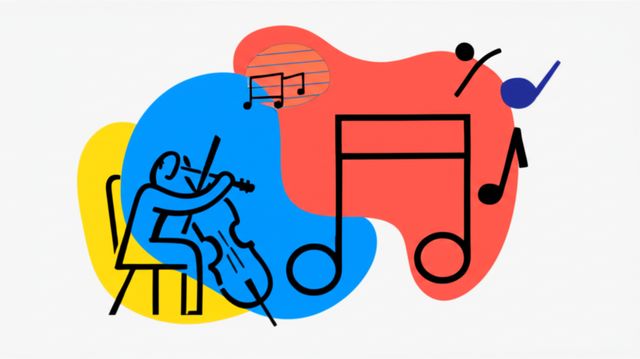Classical Music
Classical music is a vast and complex subject, encompassing centuries of musical development and encompassing a wide range of styles and genres. It can be daunting to know where to start, but online courses can provide a great way to learn about classical music at your own pace and on your own terms.
What is Classical Music?
Classical music is generally defined as the music of the Western tradition that was written between the Renaissance and the early 20th century. This includes a wide range of styles, from the polyphonic music of the Renaissance to the Romantic music of the 19th century. Classical music is often characterized by its use of complex harmonies, melodies, and rhythms, and by its emphasis on formal structure.
Why Study Classical Music?
There are many reasons to study classical music. It can provide you with a greater appreciation of music in general, and it can help you to develop your own musical skills. Studying classical music can also help you to learn about history and culture, as it is often closely tied to the political and social events of its time.
Online Courses on Classical Music
There are many online courses available on classical music. These courses can teach you about the history of classical music, the different styles and genres of classical music, and the major composers and works of classical music. Some courses also offer opportunities to listen to and analyze classical music, and to develop your own musical skills.
- Some of the benefits of taking an online course on classical music include:
- The flexibility to learn at your own pace and on your own terms.
- The ability to access a wide range of resources, including lectures, readings, and audio and video recordings.
- The opportunity to interact with other students and instructors.
- The ability to earn a certificate or degree in classical music.
Whether you are a complete beginner or a seasoned musician, there is an online course on classical music that is right for you.
Careers in Classical Music
There are many different careers available in classical music. Some of the most common include:
- Musicians: Musicians perform classical music in a variety of settings, including orchestras, chamber groups, and solo recitals.
- Composers: Composers write classical music. They may work in a variety of styles, from traditional to contemporary.
- Conductors: Conductors lead orchestras and other musical ensembles.
- Music teachers: Music teachers teach classical music to students of all ages and levels.
- Music therapists: Music therapists use music to help people with a variety of physical, emotional, and cognitive challenges.
If you are passionate about classical music, there is a career out there for you.
Personality Traits and Interests of Classical Musicians
People who are drawn to classical music often have certain personality traits and interests. These include:
- A love of music
- A strong work ethic
- A high level of discipline
- A creative mind
- A strong attention to detail
- A good memory
If you have these personality traits and interests, you may be well-suited to a career in classical music.
How Online Courses Can Help You Learn Classical Music
Online courses can be a great way to learn about classical music. They can provide you with the flexibility to learn at your own pace and on your own terms, and they can give you access to a wide range of resources. Online courses can also help you to develop your own musical skills, and they can even lead to a certificate or degree in classical music.
Are Online Courses Enough?
While online courses can be a great way to learn about classical music, they are not a substitute for in-person instruction. If you are serious about learning classical music, it is important to find a qualified teacher who can provide you with personalized instruction and feedback. However, online courses can be a great way to supplement your in-person instruction, and they can also be a valuable resource for self-study.


